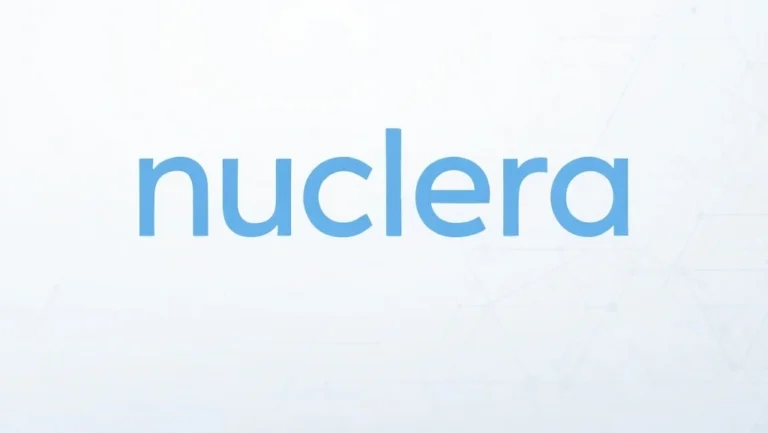
Prilenia and Ferrer Partner on Pridopidine Commercialization and Development in Europe
Prilenia Therapeutics B.V., a clinical-stage biopharmaceutical company dedicated to developing transformative therapies for neurodegenerative diseases, announced a significant new collaboration and license agreement with Ferrer, an international pharmaceutical company focused on innovative treatments for serious and rare diseases. The partnership centers around the continued development and commercialization of pridopidine, Prilenia’s lead investigational therapy, in Europe and select global markets.
Pridopidine is a potent, highly selective, orally administered sigma-1 receptor (S1R) agonist. It has been carefully engineered to target and regulate neuroprotective pathways that are often disrupted in devastating neurodegenerative conditions such as Huntington’s disease (HD) and amyotrophic lateral sclerosis (ALS). Both diseases represent areas of urgent unmet medical need, with limited treatment options available and a high burden on patients, families, and healthcare systems. By restoring key neuroprotective functions, pridopidine offers hope as a potential disease-modifying therapy rather than simply alleviating symptoms.
Financial and Strategic Details of the Agreement
Under the terms of this landmark agreement, Ferrer will gain rights to develop and commercialize pridopidine across Europe and other designated territories. In return, Prilenia will receive an upfront payment of approximately €80 million. In addition, the company is eligible for up to €45 million in near-term development, regulatory, and commercial milestone payments. Over the full course of the partnership, the agreement could be worth up to approximately €500 million, representing one of the largest deals in Prilenia’s history.
Beyond these milestone-based payments, Prilenia is also entitled to receive tiered, double-digit royalties on net sales of pridopidine in the licensed territories, ensuring a long-term revenue stream tied to the commercial success of the therapy. Importantly, Prilenia retains full ownership and commercialization rights to pridopidine in critical regions outside the scope of this agreement, including North America, Japan, and the Asia-Pacific markets.
Another notable aspect of the partnership is that Prilenia and Ferrer have agreed to jointly fund and develop additional clinical programs aimed at expanding the use of pridopidine into new therapeutic indications beyond HD. This collaborative approach reflects both companies’ shared vision to maximize the drug’s potential impact across a broader range of neurodegenerative disorders.
Leadership Perspectives on the Collaboration
Dr. Michael R. Hayden, CEO of Prilenia Therapeutics and a globally recognized leader in neurodegenerative disease research, expressed strong enthusiasm about the partnership.
“We are proud to partner with Ferrer as we advance our shared mission to bring transformative therapies to people living with neurodegenerative diseases around the world,” Hayden said. “Ferrer continues to grow their already significant presence throughout Europe and key international markets, with a particular focus on innovative products for rare diseases. By combining our unique strengths and our shared commitment to these patient communities, we believe that this partnership has the potential to accelerate the delivery of pridopidine to the thousands of people who are waiting for a new treatment option. Moreover, it offers the opportunity to broaden its impact through exploring additional indications in the future.”
On Ferrer’s side, Mario Rovirosa, CEO of Ferrer, emphasized how this collaboration aligns with the company’s larger mission.
“This agreement with Prilenia means we can continue making our purpose of using business to fight for social justice a reality, while focusing our pipeline development on diseases with high unmet medical need,” Rovirosa stated. “The combination of strengths and capabilities of our two companies makes the future brighter for the patients suffering from such underserved conditions.”
Oscar Pérez, Chief Scientific and Business Development Officer at Ferrer, added further insight into the strategic importance of the deal:
“Securing rights to this molecule represents a pivotal step in our research strategy in the neurodegeneration arena. Given the mechanism of action of pridopidine, we are fully committed to exploring its potential use across a range of indications.”
The Science Behind Pridopidine: A Distinctive Approach

Pridopidine’s potential stems from its highly selective engagement of the sigma-1 receptor, a key regulator of cellular homeostasis, protein folding, and stress response pathways within neurons. Dysfunction of these pathways has been implicated in the progression of multiple neurodegenerative diseases. Unlike many neurodegenerative therapies that target a single disease-specific protein or pathway, S1R agonists like pridopidine could exert a broad neuroprotective effect, stabilizing cells and preserving function across a variety of conditions.
This mechanism of action positions pridopidine uniquely among investigational therapies for HD and ALS. For Huntington’s disease, where the mutant huntingtin protein progressively damages neurons, and ALS, where motor neurons degenerate leading to paralysis and death, targeting the underlying cellular stress mechanisms could help slow or halt disease progression—something current therapies largely fail to accomplish.
Pridopidine has already demonstrated a strong safety profile in clinical trials and has shown early signals of efficacy in slowing functional decline, making it a promising candidate for regulatory submission and broader clinical use.
Broader Implications for Neurodegenerative Disease Treatment
The significance of this collaboration extends beyond just one drug or one disease. Neurodegenerative disorders are notoriously difficult to treat, largely due to their complex pathophysiology and progressive nature. Very few disease-modifying treatments have reached the market, and many clinical programs have failed over the years. By focusing on a fundamental cellular mechanism, pridopidine offers a new angle of attack, and this partnership ensures that its full therapeutic potential can be explored more aggressively across multiple indications.
Moreover, Prilenia and Ferrer’s decision to jointly fund additional clinical development programs suggests an intention to move quickly into new areas where the sigma-1 receptor pathway may offer therapeutic benefit. These could include other devastating conditions like Parkinson’s disease, multiple system atrophy (MSA), frontotemporal dementia (FTD), and beyond.
The collaboration between Prilenia Therapeutics and Ferrer represents a major step forward in the fight against neurodegenerative diseases. With significant financial backing, complementary expertise, and a shared commitment to innovation and patient impact, the two companies are well-positioned to bring pridopidine to the thousands of patients in Europe and beyond who urgently need new treatment options.
As Prilenia continues to drive development in North America, Japan, and Asia-Pacific, and Ferrer focuses on Europe and selected territories, the global reach of pridopidine’s potential benefit will expand. Together, the two organizations aim not just to commercialize a drug, but to usher in a new era of hope for patients facing some of the most challenging conditions in modern medicine.
In the coming months, stakeholders will watch closely for updates on clinical trial progress, regulatory submissions, and potential expansion into new indications—all of which could dramatically reshape the neurodegenerative disease treatment landscape.





